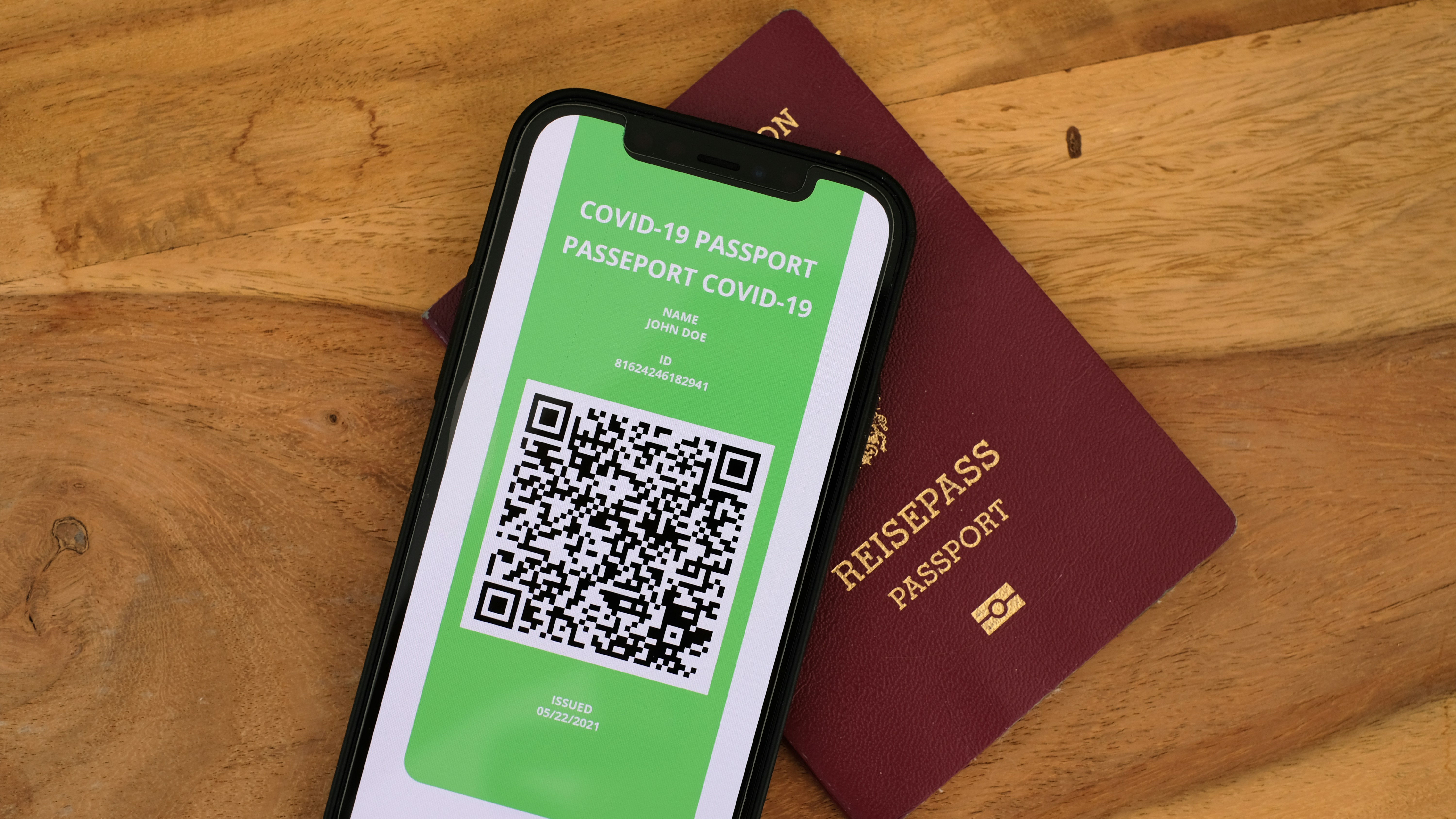🩺 Powerful Health Spells That Restore & Rejuvenate
Boost your well-being, overcome fatigue, and heal with trusted spells crafted for body and mind.
Introduction to Digital Product Passports
Digital product passports (DPPs) are innovative tools designed to provide comprehensive information about products throughout their lifecycle. Essentially, they serve as a digital identification system that encapsulates key details such as a product’s origin, materials, supply chain journey, and sustainability credentials. The integration of DPPs into the marketplace is becoming increasingly significant as both brands and consumers prioritize transparency and accountability in their purchasing decisions.
The shift towards sustainability is prompting brands to rethink their approach to product management. With rising consumer expectations for ethical sourcing and environmental responsibility, digital product passports emerge as critical instruments that facilitate clearer communication of a product’s sustainability profile. By leveraging blockchain technology and digital records, DPPs prevent misinformation by ensuring that consumers have access to verified information about a product’s constituents and manufacturing processes. This increased level of transparency not only builds consumer trust but also encourages brands to adopt more sustainable practices.
Moreover, DPPs align with the principles of a circular economy, which seeks to minimize waste through effective resource management. By providing detailed information about a product’s materials, usage instructions, and end-of-life options, DPPs empower consumers to make informed decisions regarding recycling or reusing products. This not only promotes responsible consumer behavior but also incentivizes brands to innovate in ways that enhance product lifecycle sustainability.
As the market dynamics shift towards sustainability, the role of digital product passports is expected to expand. They represent a significant step towards bridging the information gap between consumers and brands, ushering in a new era of responsible consumption. As both stakeholders recognize the benefits of transparency and accountability, the implementation of DPPs is likely to become a standard practice in various industries.
The Importance of Transparency in Modern Supply Chains
In recent years, consumer demand for transparency within supply chains has significantly increased. Shoppers are not only interested in the products they are purchasing but are also becoming increasingly aware of the origins, production methods, and materials that contribute to these goods. This shift is closely aligned with the broader concept of conscious consumerism—a movement where individuals make purchasing decisions based on ethical considerations, environmental impact, and social responsibility.
Digital product passports are emerging as a pivotal tool in responding to this demand for transparency. By providing comprehensive information tied to individual products, these digital records empower consumers, allowing them to gain insights into where and how their products are sourced and created. Information such as production location, materials used, labor conditions, and sustainability practices can now be made easily accessible through these digital passports. This not only enhances consumer trust but also creates a platform for brands to showcase their commitment to ethical practices.
The ability to access detailed information about products leads to more informed purchasing decisions as consumers can align their values with their buying habits. As brands adopt digital product passports, they contribute to a culture of accountability and transparency that is becoming increasingly important in today’s marketplace. This is not just beneficial for consumers, but it also encourages brands to improve their supply chain practices, fostering innovation and sustainability.
As the marketplace continues to evolve, understanding the importance of transparency in supply chains is paramount. The implementation of digital product passports represents a significant leap towards meeting consumer expectations and fostering a more sustainable economic framework that values ethical considerations alongside profitability.
How Digital Product Passports Work
Digital product passports (DPPs) are a revolutionary concept that facilitates the comprehensive tracking and sharing of product information throughout their lifecycle. At the core of DPPs lies advanced technologies such as blockchain and QR codes, which work synergistically to enhance transparency and security in product information management. The integration of these technologies enables brands and consumers to authenticate products, access their histories, and engage with them more intelligently.
Blockchain technology is a decentralized ledger system that securely records data across multiple devices. This transparency allows all stakeholders, including manufacturers, retailers, and consumers, to view product information that is immutable and tamper-proof. Each time a product changes hands—be it from the manufacturer to the retailer or from the retailer to the consumer—a new entry is recorded on the blockchain. This feature not only helps in authenticating the product but also provides a detailed history of its journey from production to consumption.
Explore Our Powerful Magic Spells
Choose a spell that suits your needs and experience real results today!
Complementing blockchain, QR codes serve as an accessible gateway for consumers to interact with product data. By simply scanning a QR code embedded on the product packaging, consumers can instantly retrieve pertinent information such as origin, materials used, and sustainability practices. This facilitates informed decision-making for consumers concerned about ethical sourcing and sustainability. Furthermore, brands can use QR codes to foster customer engagement by providing additional content like usage instructions or warranty information.
Digital product passports thus combine these technologies to create a seamless platform for real-time tracking and sharing of product information. As a result, consumers are empowered to make educated choices, while brands have a powerful tool for enhancing transparency. This innovation not only drives accountability within the supply chain but also aligns with the growing consumer demand for sustainable and responsible practices.
Benefits for Brands: Enhancing Trust and Loyalty
The advent of digital product passports represents a significant opportunity for brands to enhance trust and foster loyalty among consumers. By providing detailed information about a product’s origin, materials, and sustainability credentials, companies can create a transparent narrative that resonates with increasingly conscious consumers. In a marketplace where authenticity is paramount, the digital product passport acts as a reliable tool that enables brands to establish themselves as leaders in transparency and accountability.
Furthermore, the implementation of digital product passports can serve as a competitive differentiator. As consumers become more discerning in their purchasing decisions, brands that effectively communicate their story and product integrity can stand out in a crowded market. Features such as traceability help consumers understand the lifecycle of a product, contributing to a stronger emotional connection and reinforcing brand loyalty. The digital passport can facilitate this connection by allowing brands to share their values and sustainability initiatives directly with consumers.
Additionally, adopting digital product passports can assist brands in maintaining compliance with various regulatory standards. Many regions now require brands to disclose specific information about their products, including ingredient sourcing and environmental impact. By utilizing these passports, brands can easily provide the necessary information, thereby mitigating the risk of non-compliance and the potential repercussions thereof. This not only helps to safeguard a brand’s reputation but also underscores their commitment to ethical practices.
In summary, the incorporation of digital product passports can significantly bolster brand trust and consumer loyalty. Through enhanced transparency, competitive differentiation, and compliance facilitation, brands can not only meet but exceed consumer expectations in today’s evolving marketplace.
Consumer Benefits: Empowerment through Information
The introduction of digital product passports presents significant benefits for consumers, ultimately empowering them through enhanced access to information. By providing consumers with a wealth of information about the products they purchase, digital product passports enable informed decision-making. Shoppers can easily learn about a product’s origins, materials, and production processes, allowing them to evaluate the sustainability and ethical practices of brands. This transparency directly supports consumers who are increasingly mindful of the impact their purchases have on the environment and society.
Furthermore, with easy access to detailed product information, consumers are equipped to make choices that align with their values and preferences. Digital product passports can reveal a product’s ecological footprint, ensuring that consumers can select items that contribute positively to a sustainable future. This accessibility not only influences individual purchasing decisions but also drives a broader movement towards demanding higher standards from brands, urging them to prioritize sustainability and ethical practices in their production and marketing efforts.
As consumers become more aware of the benefits stemming from digital product passports, they are motivated to change their purchasing behaviors. This shift promotes ethical consumption, enabling individuals to support brands that are aligned with their ideals. Ultimately, this increased awareness puts pressure on companies to uphold quality and sustainability standards, as consumers are more likely to favor products backed by transparent information. Consequently, the implementation of digital product passports fosters a market ecosystem where ethical practices and sustainability are recognized as prerequisites for consumer trust and loyalty.
In conclusion, the rise of digital product passports offers consumers an unprecedented level of empowerment through information. This framework supports informed decision-making and encourages brands to adopt higher standards, ultimately leading to a more responsible consumer landscape.
Challenges and Barriers to Adoption
As brands consider the adoption of digital product passports, they encounter numerous challenges that could impede a smooth transition. One of the most significant obstacles lies in the financial investment required for the necessary technology. Implementing such systems often necessitates substantial upfront costs for hardware, software, and ongoing maintenance. This can be particularly daunting for smaller brands that may not have the same resources as larger corporations to invest in this digital infrastructure.
Moreover, integrating new digital product passport systems with existing operational frameworks presents its own challenges. Many organizations operate with legacy systems that may not be compatible with modern digital solutions, creating a complex landscape for adoption. This integration often requires extensive training for staff, alterations to workflows, and potentially a re-evaluation of supply chain processes, which can be resource-intensive and time-consuming. In some cases, companies might find that their current systems do not support the innovative features offered by digital product passports, necessitating a complete overhaul.
Data privacy concerns also play a critical role in the reluctance to adopt digital product passports. Consumers are increasingly aware of how their information is collected and used, leading to heightened scrutiny of any system that tracks product data. Brands must navigate the fine line between leveraging consumer data for enhanced transparency and ensuring the protection of personal information. Additionally, compliance with global data protection regulations, such as the General Data Protection Regulation (GDPR) in Europe, adds another layer of complexity that brands must address. Failure to adequately manage these concerns could result in legal repercussions and a loss of consumer trust.
Case Studies: Brands Leading the Way
Several brands have successfully integrated digital product passports into their operations, demonstrating the potential of this innovative approach in enhancing product transparency and sustainability. One notable example is the multinational sporting goods giant, Adidas. In 2021, Adidas launched its “End Plastic Waste” initiative, which included digital product passports for a selection of its footwear line. These passports provide consumers with detailed information about the materials used, the manufacturing process, and sustainable practices employed. By offering such transparency, Adidas has not only improved customer engagement but also positioned itself as a leader in sustainable fashion.
Another remarkable case comes from the French luxury brand, LVMH, which has recently initiated a digital passport project across several of its prestigious labels, including Louis Vuitton and Dior. LVMH’s strategy involves integrating advanced blockchain technology, enabling each product to have a unique digital identifier. This approach has addressed several challenges, including counterfeiting and lack of traceability. By overcoming these obstacles, LVMH has enhanced consumer trust and fortified its brand reputation, showcasing commitment to authenticity and ethical practices.
Meanwhile, the Scandinavian furniture company, IKEA, has taken significant strides in implementing digital product passports within its product range. In collaboration with technology partners, IKEA has developed a digital platform where consumers can access detailed information about the sustainability aspects of each product. This includes data on materials, lifecycle environmental impact, and recycling options. This initiative not only supports eco-conscious purchasing decisions but also strengthens IKEA’s relationship with a customer base that increasingly values sustainable retail practices.
These brands highlight the myriad benefits that digital product passports can bring to both businesses and consumers alike. From enhancing transparency to building stronger connections, the successful implementation of this approach undeniably positions these companies at the forefront of sustainable innovation in their respective industries.
The Future of Digital Product Passports
The evolution of digital product passports is poised to significantly transform various industries by leveraging emerging technologies and addressing the shifting expectations of consumers. As businesses strive to enhance their transparency and sustainability efforts, digital product passports could become essential tools in establishing a strong connection between brands and consumers. Recent innovations in blockchain technology and Internet of Things (IoT) devices are likely to play a crucial role in this transformation, ensuring that critical product information, such as sourcing, manufacturing processes, and lifecycle impacts, can be recorded and accessed seamlessly.
Moreover, the growing emphasis on regulatory frameworks around sustainability and consumer protection is expected to spur advancements in the digital product passport landscape. Governments and regulatory bodies are increasingly focusing on enforcing standards that require transparent product information, proper recycling protocols, and sustainable material usage. In this context, digital product passports will serve not only as a means of compliance but also as a competitive advantage, enabling brands to differentiate themselves in a crowded marketplace.
Another significant factor driving the future of digital product passports will be the changing consumer expectations. Modern consumers are more inclined to make informed purchasing decisions, which necessitates access to comprehensive product data. As awareness regarding environmental and social issues escalates, brands that adopt digital product passports will likely capture the attention of conscientious shoppers. By making transparent information available about product safety, ethical production practices, and end-of-life options, companies can foster loyalty and trust among consumers.
In summary, as technological advancements, regulatory changes, and consumer expectations continue to evolve, the future of digital product passports appears bright. Brands that proactively integrate these passports into their operations are not only preparing for compliance with emerging regulations but also position themselves as frontrunners in sustainability and transparency, addressing the needs of both consumers and the planet.
Conclusion: Embracing the Shift
As we navigate the complexities of modern commerce, the emergence of digital product passports represents a significant advancement for both brands and consumers. This innovative approach not only enhances transparency in sourcing and manufacturing processes but also builds a foundation of trust, critical in today’s conscientious market. By adopting digital product passports, brands can provide consumers with verifiable information on product origins, materials, supply chain practices, and environmental impacts. Such accessibility not only empowers consumers to make informed choices but also encourages brands to uphold ethical and sustainable practices.
Furthermore, digital product passports are aligned with the growing demand for accountability in the fashion and consumer goods industries. They serve as tangible evidence of a brand’s commitment to sustainability and responsibility, thereby fostering a more profound connection with eco-conscious consumers. This shift is essential as consumers increasingly prioritize brands that demonstrate a genuine commitment to reducing their environmental footprint. As digital product passports gain traction, they may become integral to consumer purchasing decisions, influencing brand loyalty and market positioning.
Brands are urged to consider the long-term benefits of integrating digital product passports into their operations. By adopting this innovative system, they not only respond to consumer expectations but also prepare themselves for forthcoming regulations aimed at promoting sustainability. Ultimately, embracing the trend of digital product passports is not merely a compliance measure; it is an opportunity to lead the market, appeal to a broader audience, and contribute to a more sustainable future. With a commitment to transparency, brands can differentiate themselves in an increasingly competitive landscape while championing environmental stewardship.










